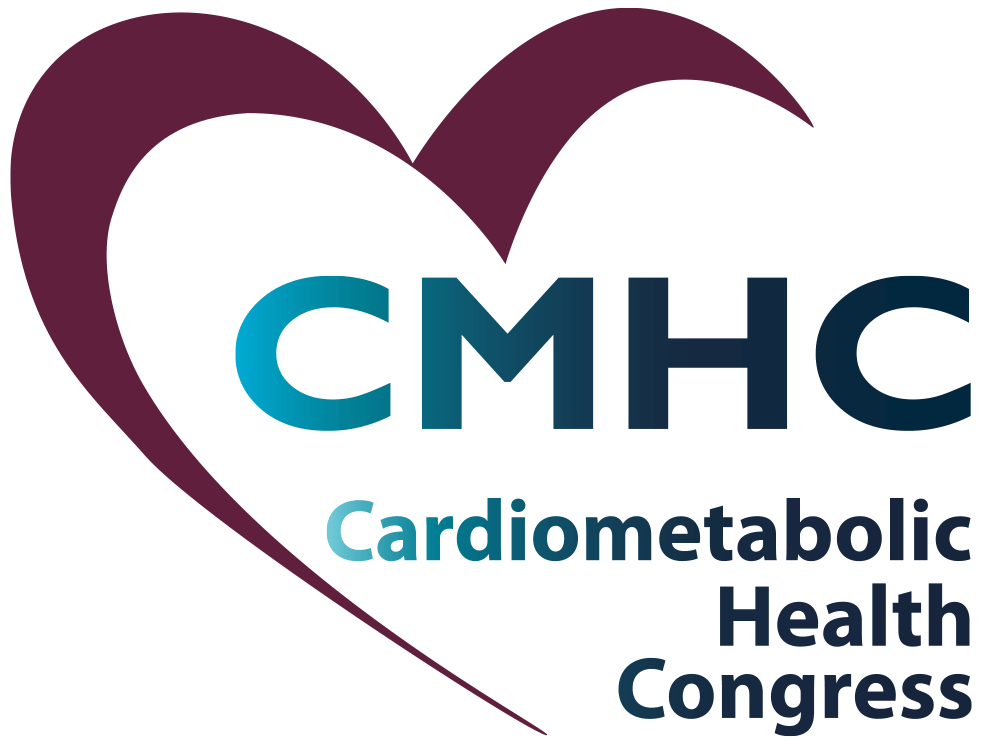CME SYMPOSIA
CME Breakfast Symposium
Bridging the Frontiers of Care in Patients with Type 2 Diabetes and Chronic Kidney Disease: Interpreting the Data with Novel MR Antagonists to Improve Cardiorenal Outcomes
This activity is jointly provided by Global Education Group and Cardiometabolic Health Congress.
Supported by an educational grant from Bayer HealthCare Pharmaceuticals Inc.

CHAIRED BY:
George L. Bakris, MD
Friday, April 8, 2022
7:00 AM - 8:30 AM
Room: Trailblazers Ballroom
Learning Objectives:
After completing this activity, the participant should be better able to:
- Recognize the burden of comorbid CKD and T2DM as a major driver of cardiovascular and renal morbidity and mortality.
- Identify T2DM patients at risk for kidney disease or kidney disease progression based on. recommended diagnostic practices.
- Summarize the efficacy, safety, and mechanisms of action of nonsteroidal MRAs and other emerging treatment options for DKD.
- Select tailored treatment regimens that reduce the risk of cardiorenal adverse events in T2DM patients with CKD.


This activity is approved for AMA PRA Category 1 CreditsTM and is eligible for ACPE, ANCC and CDR credit, see final activity announcement for specific details. Full CME information to come.
CME General Session
The Disproportionate Burden of ATTR-CM in African Americans: Advances in Diagnosis and Treatment to Help Reduce Disparities and Improve Outcomes
This activity is jointly provided by Global Education Group and Cardiometabolic Health Congress.
Supported by an educational grant from Alnylam Pharmaceuticals, Inc.

PRESENTED BY:
Keith C. Ferdinand, MD
Friday, April 8, 2022
10:10 AM - 10:30 AM
Room: Trailblazers Ballroom
Learning Objectives:
After completing this activity, the participant should be better able to:
- Define the pathophysiology, prevalence, and types of ATTR-CM.
- Recognize the disproportionate burden of ATTR-CM in African Americans and the significance of Val 1221 mutation.
- List current and emerging screening and diagnostic approaches aimed to optimize the early identification of African American patients with ATTR-CM.
- Review the different options for the treatment of ATTR-CM, including new and emerging novel targeted agents


CME General Session
Continuous Glucose Monitoring: Going Beyond HbA1c to Optimize and Individualize the Management of Type 2 Diabetes
This activity is jointly provided by Global Education Group and Cardiometabolic Health Congress.
Supported by an educational grant from Abbott Diabetes.

PRESENTED BY:
Viral N. Shah, MD
Friday, April 8, 2022
2:50 PM - 3:25 PM
Room: Trailblazers Ballroom
Learning Objectives:
After completing this activity, the participant should be better able to:
- Summarize the guidelines and evidence for the appropriate use of CGM in patients with type 2 diabetes.
- Explain ambulatory blood glucose profile (AGP) data and other important CGM metrics in patients with type 2 diabetes.
- List new and emerging CGM technologies and their associated clinical features.
- Incorporate the use of CGM when appropriate to individualize therapy in patients with type 2 diabetes.


CME Breakfast Symposium
The Evolving Landscape of LDL-C Reduction in High-Risk Patients: Optimizing Combination Therapy to Reduce ASCVD Risk
This activity is jointly provided by Global Education Group and Cardiometabolic Health Congress.
Supported by an educational grant from Novartis Pharmaceuticals Corporation.

CHANGE BY:
Christie M. Ballantyne. MD
Saturday, April 9, 2022
7:30 AM - 8:30 AM
Room: Trailblazers Ballroom
Learning Objectives:
After completing this activity, the participant should be better able to:
- Recognize the need for the early and adequate intensification of LDL-C lowering therapy beyond statins to address ASCVD risk.
- Interpret the data from across major trials and real-world studies with PCSK9 inhibitors and their implications for patient selection.
- Review the new approaches with novel LDL-C lowering agents and their potential impact in ASCVD risk reduction.
- Select individualized treatment strategies for hypercholesterolemic patients that prioritize the early initiation and intensification of therapy to reduce ASCVD risk.


This activity is approved for AMA PRA Category 1 CreditsTM and is eligible for ACPE, ANCC and CDR credit, see final activity announcement for specific details. Full CME information to come.
CME Lunch Symposium
Changing The Treatment Paradigm for LDL-C Lowering Post-Ml: The Case for Early High-Intensity Lipid Lowering Therapy' to Improve Outcomes
This activity is jointly provided by Global Education Group and Cardiometobolic Helath Congress.
This activity is supported by educational funding provided by Amgen.

CHAIRED BY:
Christie M. Ballantyne. MD
Saturday, April 9, 2022
12:25 PM - 1:25 PM
Room: Trailblazers Ballroom
Learning Objectives:
After completing this activity, the participant should be better able to:
- Review current guideline recommendations for lipid testing, lipid targets, and lipid-lowering therapy in patients with a recent MI.
- Explain the efficacy and safety of PCSK9 inhibitors in patients with a recent Ml and their implications for patient selection.
- Describe individualized treatment strategies for very-high risk ASCVD patients with a recent Ml that prioritize the early initiation and intensification of treatment to optimize overall outcomes.


This activity is approved for AMA PRA Category 1 CreditsTM and is eligible for ACPE, ANCC and CDR credit, see final activity announcement for specific details. Full CME information to come.














